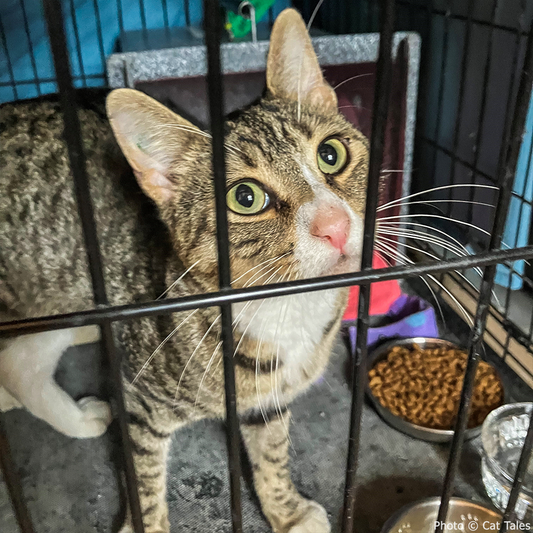Supreme Court Grants Win For Animal Rights Whistleblowers, Rejects North Carolina's Appeal in 'Ag-Gag' Battle
Matthew Russell
Pexels
In a significant legal development for animal rights and free speech, the Supreme Court has decided not to hear North Carolina's appeal in a dispute with animal rights groups over a controversial "ag-gag" law.
This decision reaffirms a legal victory for People for the Ethical Treatment of Animals (PETA) and other organizations challenging the law.
 Photo: Pexels
Photo: PexelsAg-gag laws are legislation aimed at restricting undercover investigations in the animal agriculture industry.
As ABC News reports, the dispute at the heart of this legal battle centers on an "ag-gag" law enacted in North Carolina in 2015. This law aimed to prevent undercover employees at farms and other workplaces from taking documents or recording video.
PETA, a prominent animal rights group, expressed concerns that this law could be used to prosecute them under the "Property Protection Act" if they conducted undercover investigations, such as those at testing laboratories at the University of North Carolina at Chapel Hill.
“People have a right to know about illegal and unethical conduct. Exposing unsafe or inhumane practices and working conditions is essential to holding powerful bad actors accountable for the harm they cause,” David Muraskin, a lawyer with FarmSTAND — representing PETA and other groups that challenged the law, told PBS.
 Photo: Pexels
Photo: PexelsThese laws often criminalize the documentation of activities within farms and slaughterhouses.
The Supreme Court's Decision in North Carolina
The recent Supreme Court decision marks the rejection of North Carolina's appeal related to the "ag-gag" law, reports the Associated Press. The justices have chosen to uphold the legal victory for PETA and other animal rights groups, who had challenged the law in court. In a 2-1 decision by the 4th U.S. Circuit Court of Appeals in February, the law was ruled unenforceable against PETA and similar organizations when their undercover work was for the purpose of newsgathering activities.
Implications for Animal Welfare
This decision has far-reaching implications for animal welfare. According to the Animal Legal Defense Fund, it affirms the right of animal rights groups and investigative journalists to expose illegal and unethical conduct in farms and workplaces.
The ability to reveal unsafe or inhumane practices and working conditions is crucial for holding wrongdoers accountable for the harm they cause. In this context, the decision can be seen as a victory for transparency and the well-being of animals.
 Photo: Pexels
Photo: PexelsThe primary purpose of ag-gag laws is to protect the agricultural industry from negative exposure and scrutiny.
Understanding "Ag-Gag" Laws
The North Carolina law is just one example of so-called "ag-gag" laws, which are designed to restrict undercover activists from recording footage in the animal agriculture industry. These laws have faced legal challenges across various states due to concerns about free speech and the suppression of investigative work.
The state of North Carolina, along with the North Carolina Farm Bureau Federation, had defended the "ag-gag" law in court. They argued that there were conflicting decisions among different circuit courts regarding whether audio-visual recording should always be considered protected speech. Additionally, they raised concerns about recording taking place on nonpublic property without the owner's consent.
 Photo: Pexels
Photo: PexelsThese laws have been criticized for infringing on free speech and the right to expose unethical practices.
Animal rights groups and advocates for investigative journalism argue that reversing the 4th Circuit's decision would have discouraged whistleblowers and undercover investigations of various kinds, including those related to sexual harassment, PBS reports.
The Supreme Court's Stance in 'Ag-Gag' Laws
The Supreme Court's decision not to hear North Carolina's appeal is notable in the context of "ag-gag" laws. The Court has consistently refused to weigh in on these issues, leaving legal battles over these laws to lower courts, reports The Mountaineer.
The Supreme Court's decision not to hear North Carolina's appeal in the "ag-gag" law dispute is a win for transparency, free speech, and animal welfare. It reaffirms the right of animal rights groups and investigative journalists to expose wrongdoing in farms and workplaces. This decision underscores the ongoing legal challenges and debates surrounding "ag-gag" laws and their potential impact on whistleblowers and investigative work.
In the ever-evolving landscape of animal welfare and free speech, this decision serves as a significant milestone, paving the way for continued advocacy and transparency in the quest for improved conditions and treatment of animals.
Click below and help us make a difference for farm animals across the country.
Matthew Russell is a West Michigan native and with a background in journalism, data analysis, cartography and design thinking. He likes to learn new things and solve old problems whenever possible, and enjoys bicycling, spending time with his daughters, and coffee.




















